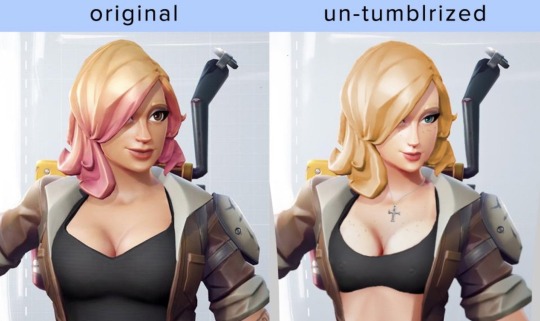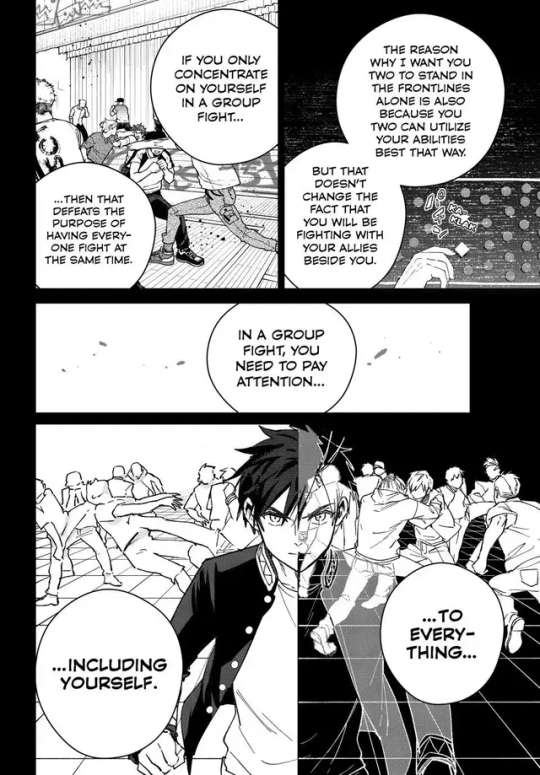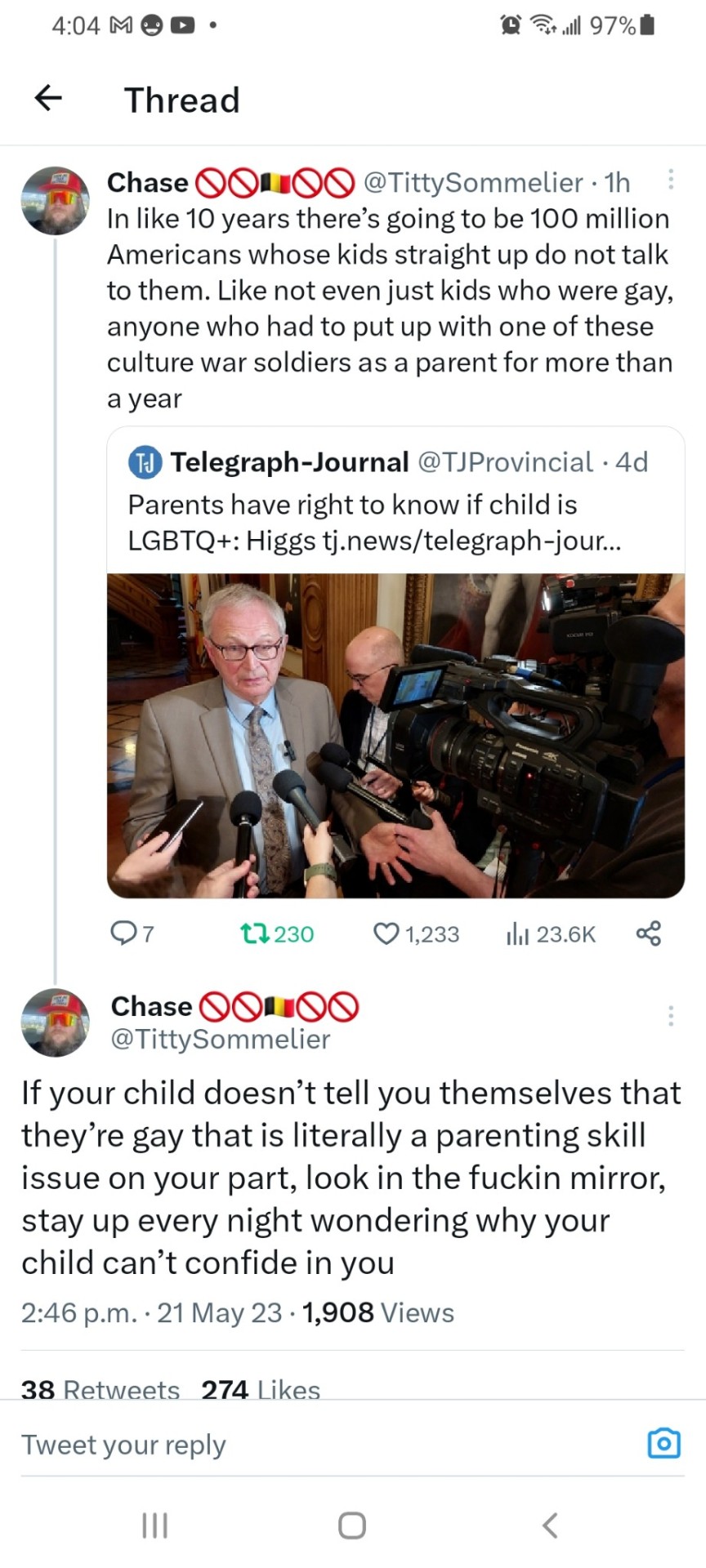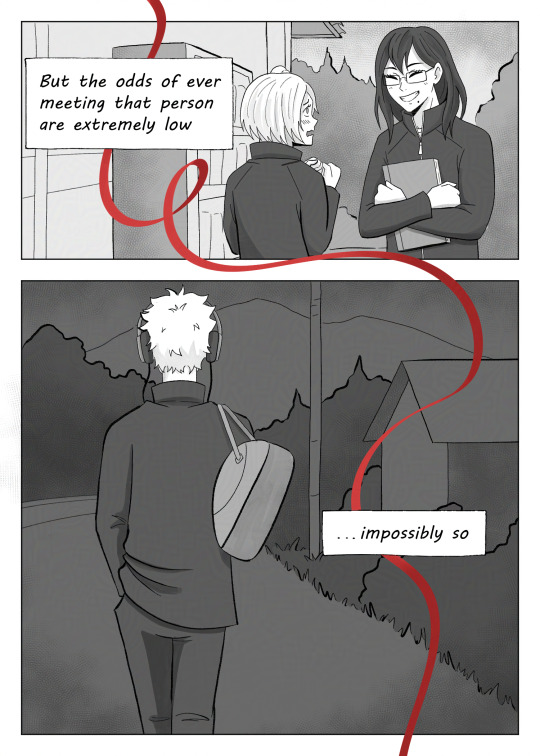Hi, I'm Ky! This is my personal blog where I repost or post whatever I please. I enjoy anime, languages, in depth analysis, and cold weather; oh, and oxymorons. - 24 - she/her - pan pride - INFP - talk to me about yourself, all sports anime, just all the anime, other various media, philosophy, mental health, or weather aesthetics
Don't wanna be here? Send us removal request.
Text
Fuck it, I didn't want to make a post on this but it's bugging the hell out of me so let's exorcize the thought.
Lilo and Stitch is an extremely good children's movie. I've been working at a daycare for over five years now, and out of all the children's movies I've shown to an auidence of twenty or so school-age kids (i.e. between the ages of 5 and 12), the only movie that's held their attention as well as Lilo and Stitch is The Emperor's New Groove, and the only one that's held it better is An American Tail. Of those three, Lilo and Stitch has won the vote of "what movie we will watch" the most. It not only entertains kids, but emotionally captivates them from start to finish, because it very thoroughly understands how to engage children on their level. It's a smart, tightly written children's movie.
The feat of story-telling genius it pulls of lies in its ability to reach both where children's imaginations want to go and where their lived real-world experiences lie - most children's movies focus on one or the other, but Lilo and Stitch dives deep into both. On the imagination side, there's Stitch's whole plotline of being a little alien monster being chased by other weirdo aliens onto earth because they want to stop him from running amok and causing havoc (which, of course, happens anyway in fun cartoony comedy/action spectacle). On the real-world side, you have Lilo's plotline of being a troubled little girl who has an abundance of very real problems that, like an actual child, she struggles to comprehend and deal with, as well as the many adults in her life that care about her to some degree but all struggle to fully understand her. Kids want to be Stitch and run amok and cause cartoony havoc. Kids, even the least-troubled kids, relate to Lilo, because all of them have been in a similar situation as her at least once in their lives.
Balancing these two very different stories, with very different tones and scopes to their respective conflicts, is a hard writing task, but Lilo and Stitch manages to do it in a way that seems effortless with one very powerful trick. The two plots are direct mirrors to each other, complete with the characters involved in each having foils in the respective plot. To break it down:
Stitch, the wild and destructive alien gremlin who everyone has labeled as a crime against existence, is Lilo, the troubled young girl who's viewed as a "problem child" by all the adults in her life. In both plotlines, Stitch and Lilo are facing the threat of being "taken away" from the life they know because they act out, and in both plotlines, we see that this is an unfathomably cruel thing to do to them and will not actually solve the problems they have.
Dr. Jumbaa, the mad scientist who made Stitch because making monsters is what mad scientists do, and who had no intentions of ever being nurturing or parental to anything or anyone in his life, is Nani, Lilo's older sister whose parents died when she was young and now is forced to act as a parental substitute despite not being mentally or emotionally prepared for that responsibility yet. Both Dr. Jumbaa and Nani are trying to get their respective wild children in line with what society wants them to be, and both are struggling hard with it because they in turn have a lot of growing to do before they can actually accomplish that.
Pleakley, the nebbish alien bureaucrat who ends up being assigned to help Dr. Jumbaa despite being mostly uninvolved in creating the whole Stitch situation, is David, the nice but mostly ineffectual guy who's crushing on Nani and wants to help her but doesn't really have much he can provide except emotional support. Ultimately Pleakley and David prove that said emotional support is a lot more helpful than it seems on the surface, as they give Jumbaa and Nani respectively a lot of the pushes they need to become better in their parental roles.
The Grand Councilwoman, who runs the society of aliens that is trying to banish Stitch forever for his crime of existing, is Cobra Bubbles, the Child Protective Services agent who is in charge of deciding whether or not Lilo needs to be taken away from her home forever for, ostensibly, her own good. Both are well-intentioned and stern, with a desire to follow the rules of society and do what procedure says is the most humane thing to do in this situation, but both lack the understanding of Stitch/Lilo's situation to actually help until the end of the movie.
Finally, we have Captain Gantu, the enforcer of the Galactic Council who is a mean, aggressive, sadistic brute but is viewed as a "good guy" by society because he plays by its rules (well, when he knows can't get away with breaking them, anyway), who is the counterpart of Myrtle, the mean, aggressive, sadistic schoolyard bully who is viewed as a "good kid" by other adults because she plays by the rules they established (well, when she knows she can't get away with breaking them, anyway). Both Gantu and Myrtle are, in truth, much nastier in temperament than Stitch and Lilo, but are better at hiding it in front of others and so get away with it, and often make Stitch and Lilo look worse in the eyes of others by provoking them to violence and then playing the victim about it - in fact, both even have the same line, "Does this look infected to you?", which they say after goading their respective wild-child victims into biting them.
The symmetry of these two plotlines allows them to actually feed into each other and build each other up instead of fighting each other for screentime. The fantastical nature of Stitch's plot adds whimsy to the far more realistic problems that Lilo faces so they don't get too heavy for the children in the audience, while the very real struggles of Lilo in her plotline bleed over into Stitch's plot and make both very emotionally poignant. When both plotlines hit their shared climax, they reach children on a emotional level few other movies can match - the terror of Lilo being taken away from her family, and the emotional complexity of that problem (Cobra Bubbles pointing to Lilo's ruined house and shouting at Nani, "IS THIS WHAT LILO NEEDS?" is so starkly real and heart-breaking), is matched and echoed in the visual splendor and mania of the spectacular no-way-this-is-going-to-work chase scene where Stitch, Nani, Jumbaa, and Pleakley all team up to rescue Lilo from Gantu.
The arcs of the characters all more or less line up. Nani confronts her own failures to be a guardian and parent to Lilo and resolves to do better and learn from her mistakes. Jumbaa, who through most of the movie protests to be evil and uncaring, nonetheless comes to not only care for Pleakley, but more importantly for Stitch too, and ends up assuming the role he never wanted but nonetheless forced himself into from the start: he is Stitch's family. Hell, the moment that reveals this is really clever - Stitch goes out into the wilderness to try and re-enact a scene from a storybook of The Ugly Duckling, hoping, in a very childish way, that his family will show up and love him. Jumbaa arrives and, coldly but not particularly cruelly, tells Stitch that he has no family - that Stitch wasn't born, but created in a lab by Jumbaa himself. But in that moment Jumbaa is proving himself wrong - because Stitch's creator, his parent, DID show up, and did exactly what happens in the story by telling Stitch the truth of what he is. It can't be a surprise, then, that later in the movie Jumbaa ends up deciding to side with Stitch, to help him save Lilo, and to stay on Earth with his child.
David and Pleakley go from being pushed away by Nani and Jumbaa respectively to essentially becoming their partners in the family. The Grand Councilwoman and Cobra Bubbles finally see how cruel their initial solution of isolating Stitch and Lilo from their family would be, and bend the rules they are supposed to enforce to protect and support this weird found family instead of breaking it apart. Gantu and Myrtle are recognized for the assholes they are and face comeuppance in the form of comedic slapstick pratfalls. And most importantly, Stitch and Lilo both get the emotional support and understanding they need to thrive and live happy lives as children should be allowed to do. It's like poetry, it rhymes.
It's a very precise, smartly written movie. It's a delicate balancing act of tone and emotions, with a very strong theme about the need for family and understanding that hits children in their hearts and imaginations. It's extremely well structured.
...
So it'd be kind of colossally fucking stupid to remake it and start fucking around with the core structure of it, chopping out pieces and completely altering others, with no real purpose beyond "Well, the executives thought it might be better if we did this."
36K notes
·
View notes
Text
i saw a post on twitter by a european saying americans are fake for their random compliments to strangers and their general cheery demeanor and like no. no no no you don’t understand. if you get a random compliment from an american on the street about your outfit or whatever, that is 100% genuine. we mean it. we aren’t lying we are making a small but fleeting connection with you because our lives are shitty but the human condition is enduring. oh god i’m clutching my chest
142K notes
·
View notes
Text

i wish i could see this picture for the first time again
171K notes
·
View notes
Text
why is ao3 is blocked on the hospital wifi????
149K notes
·
View notes
Text
Gonna chill out the rest of May and then change my entire life in June. Possibly July if that doesn't work out. Certainly no later than September or October.
64K notes
·
View notes
Text
[gripping the sink] perfectionism does not help me avoid embarrassment or shame. perfectionism is in itself a form of shame. when i struggle with perfectionism i struggle with shame. when i struggle with perfectionism i struggle with shame. when i struggle with perfectionism i struggle with shame
50K notes
·
View notes
Text
i think you can recognize that the usage of ai by students of all grades and all around the world to cheat through their assignments is not a personal moral failing but just yet another symptom of the mechanistic if not, at this point, basically dehumanized processes of our education systems which are nowadays almost solely focused on demanding production from students and churning out degrees required for jobs while ignoring any tangible verification of their actual knowledge, intellectual development and critical thinking skills, much less their mental health, while also pointing out that using ai to write your essay isn't a power move to cheat a flawed system, it is behaving exactly as the system designed, it is cheating yourself by giving up your ability to speak, think for and challenge yourself and bowing your head to powers who will only benefit from not being questioned, and the only reason text genai is so widespread right now is because it was born on the perfect breeding ground that is anti intellectualism
25K notes
·
View notes
Text
I wish Americans fucked with more foreign music. You don’t have to know the language to appreciate a good record. Folks in other countries listen to our music and don’t speak a lick of english. Music needs no translator
239K notes
·
View notes
Text
i love the world so much. why do i often forget this
21K notes
·
View notes
Text
you can hate yourself all you want but the world is beautiful and it welcomes you
17K notes
·
View notes
Note
I agree with your points about how Suo and Sakura fool each other super well! I also love how differently they approach problems when a plan is needed. Like how Sakura tends to jump in headfirst, but when a plan is really needed he turns to Suo and trusts him to handle it. And Suo’s plans for protecting the bridge were legitimately brilliant, showing how correct Sakura was to trust him with it. (Seriously, Suo’s talent for strategy that goes beyond even their normal one on one fights and into planning out giant group fights is insanely impressive and I somehow never really see anyone mention that) But I just love that while being foils of each other they also support each other where they can and become much stronger for it
Going off on a tangent here, but Suo’s intelligence has to be one of my favorite parts of his character.
A little detail I like is how he references Japanese mediums of storytelling:



But the best example of Suo’s sheer intellect is during the Tsubaki chapters.
When Suo talks about the significance of Yui planting the dogwood tree, he first explains it’s Hanakotoba (Japanese flower language).

However, the “Am I indifferent to you” definition is not part of the dogwood tree’s flower language. In fact, Suo actually refers to this custom from the 19th century:

As Yui was the one who planted the tree (rather than Ito, the male), she (the woman) conveys that her feelings towards her husband are not of indifference despite his prior belief. Since this was a tradition from the Victorian Era (which predominantly took place in the United Kingdom and its colonies), Suo explains the meaning in English rather than Japanese.

And as you’ve mentioned here, Furin would’ve been cooked by Noroshi’s massive numbers if Suo didn’t come up with their main strategy. Additionally, Sakura would’ve never worked with Sugishita or realize that he can’t fight alongside other people properly if it wasn’t Suo who had guided him.






Because of Suo’s guidance, Sakura was able to take down enemies with Sugishita and fight well during the first half of Noroshi. In a way, Suo is the brains to Sakura’s brawn (and Nirei would be the heart).


79 notes
·
View notes
Text
Okay, I hear you folks loud and clear. Here it is.


How Suo foils Sakura as a character
For starters, their personalities, on the surface, are quite different. Sakura is rather brash, but he is very upfront about his feelings and takes initiative when needed. Suo carries himself with dignity and grace, but remains passive and would much rather observe a situation unfold at a distance.




This translates into the way they fight as I’ve mentioned before. Aside from their fighting styles being completely different (Sakura’s kickboxing is close contact while Suo’s aikido lacks contact and focuses on deflecting attacks), the way they treat their opponents differ. While Sakura makes an effort to understand Togame, Suo imposes his own (contrived) worldviews on Kanuma. Sakura converses; Suo monologues.


Speaking of Umemiya’s philosophies, Sakura is known to eat a lot ( @furinfry made a really nice writeup on this theme, and they explain it much better than I can), even being dubbed a glutton by… Suo. Which is funny, because it’s been shown that Suo himself doesn’t consume food around others, claiming to be on a diet.



If Suo’s refusal to eat is a metaphor for his self-alienation from his peers, then Sakura’s acceptance of Umemiya’s advice is proof of his assimilation to Furin.



On the topic of alienation, Sakura is vulnerable and wears his heart on his sleeve; he unintentionally lets people into his world whether he realizes or not. Suo does none of these things—and his emotions are either (unintentionally) drawn out by the people he cares about, or when he witnesses something that contradicts his principles.




Sakura hates covering his appearance, while Suo makes it a point to do so (given that he literally wore a scuba suit to a beach).


The way they treat Nirei post-KEEL also differ. Suo is concerned for Nirei and helps foster his fighting skill to the extent of abilities, but Sakura remains rather ‘wary’/protective of Nirei (obligatory dead wife flashback mention)


There’s also the case with how they handle other people’s situations. Suo first observed and evaluates, then shares his own rational conclusion while Sakura tends to be upfront of what he feels about it.


The way their internal dialogues are written also differ. Sakura’s focuses on himself and his introspections (given that he’s the MC), and they’re very descriptive. But Suo’s is limited; he simply addresses the situation around him. The only time he introspects is to put himself below Sakura.



I’m probably missing a lot of things, but these are the ones I can think of off the top of my head.
Additional Tidbits which add no value to this post:
Sakura’s flower is the Cherry Blossom, a tree that is so rooted in Japanese culture. Suo’s is the Chinese redbud, which is well… inherently Chinese (gotta tag @psychicwavementality for this one)
Sakura is learning how to cook, but Suo makes it a point that he prefers to bake instead
Sakura develops throughout the story, but Suo stays rather stagnant (I really want to make a writeup on this which also talks about Nirei’s development soon)
Suo’s character color is red; Sakura’s color is sometimes green (representing Furin). Both red and green are complementary colors on the color wheel.
333 notes
·
View notes
Text
it’s fun that Mormonism is based off pseudo-archeology and Scientology is based off pseudo-psychiatry. By that logic the big American New Religious Movement of the 21st century is gonna be based on… pseudo-computer science?
52K notes
·
View notes
Text
Suo wanted a photo of Sakura so bad (Official chat)

What do you mean you got excited just for a picture of Sakura? Explain? 🤨📸
This guy thought it was a picture of Sakura, and was disappointed (he still likes the cherry blossom photo tho)
I KNOW WHAT YOU ARE SUO 🫵
Not only Suo, the other guys are all down bad for their class president, heck this chat is literally Sakura’s fanclub

BESIDES: Satoru Nii drew Sakura with cherry blossom 🌸


(I guess we can assume that Nirei is the one who took the photo?)
Too bad, Suo won’t see this beautiful photo of his dear Sakura-kun~ But don’t worry Suo, you’ll be able to see it….
Just ask Nirei in secret 🤫
399 notes
·
View notes
Text
crossfaded off of birdsong and a ray of sunlight
21K notes
·
View notes




